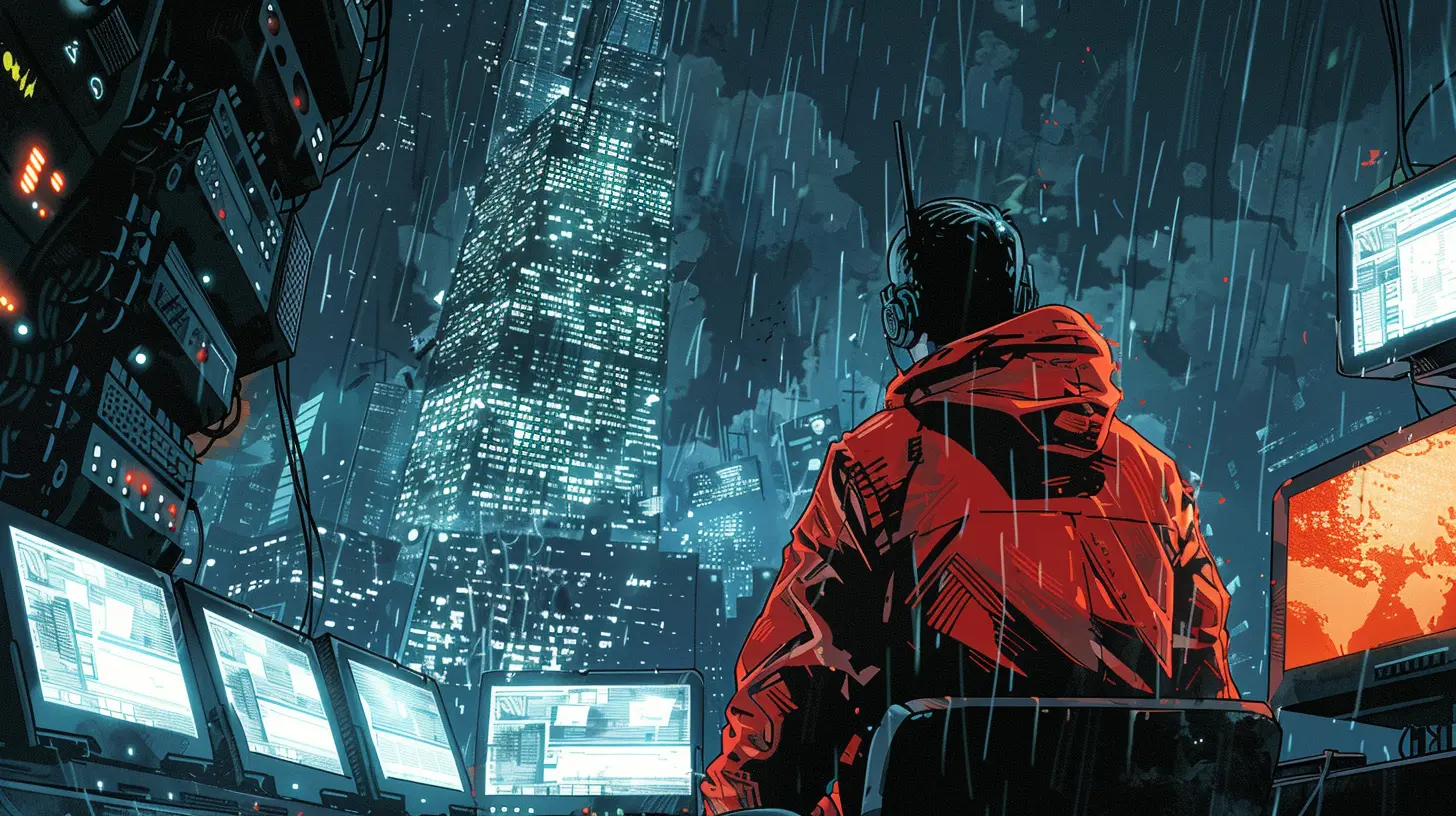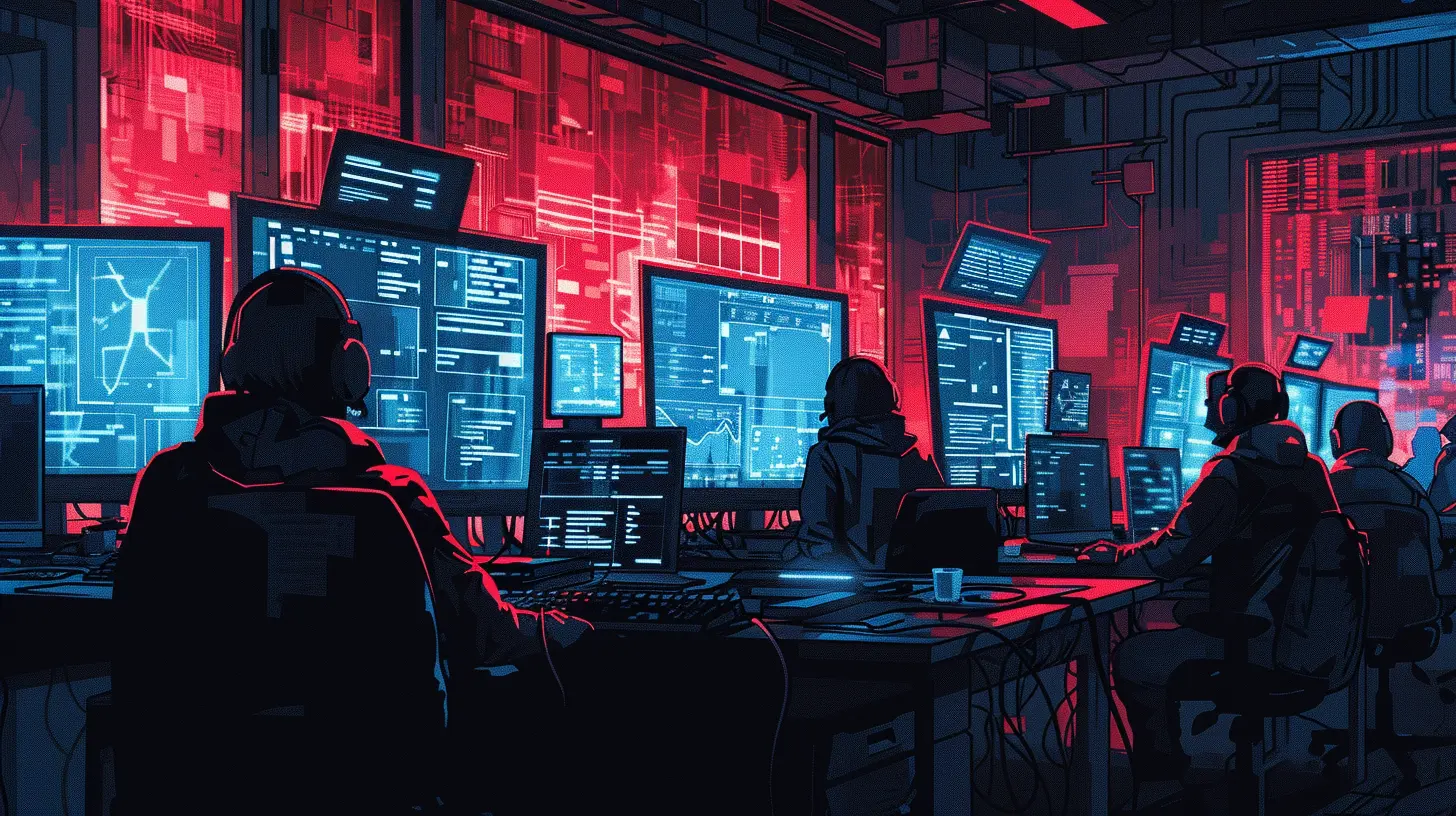The Rise of Hacktivism: When Cyber Attacks Serve a Cause
19 August 2025
In the world of cybersecurity, things have changed—a lot. We’re no longer just talking about hackers lurking in shadows stealing data for money. Nope. These days, cyber attacks are being used to make noise, fight injustice, and challenge power. Welcome to the age of hacktivism, where tech-savvy rebels are crossing digital wires for social, political, and environmental causes.
But what exactly is hacktivism? Why is it becoming such a big deal? And who are these digital vigilantes shaking up the internet? Let’s break it down.
What is Hacktivism Anyway?
At its core, hacktivism is the blending of hacking and activism. It’s when hackers use their skills not for personal gain, but to promote a cause, protest unfairness, or expose corruption. Think of it as digital graffiti—except instead of tagging a wall, they might deface a government website or leak hidden documents.Some people call them cybercriminals. Others call them freedom fighters. Honestly, it depends on which side of the firewall you're on.
A Brief History: From Phone Phreaking to Political Protesting
Hacktivism isn’t brand new. It’s been part of the digital underground since the internet began to take shape. Let’s rewind a bit.- 1980s-1990s: Early groups like the Cult of the Dead Cow were already experimenting with cyber tools for protest. They weren’t just about breaking into systems—they were questioning authority and pushing for change.
- 1999: The group “Electronic Disturbance Theater” launched virtual sit-ins against the Mexican government in support of the Zapatista movement. It was one of the first politically motivated denial-of-service attacks.
- 2000s: Here’s where things start to heat up. Groups like Anonymous burst onto the scene, turning masks into symbols and targeting everything from Scientology to governments across the globe.
- 2010s-Today: The rise of social media, cloud computing, and mass surveillance has fueled a new wave of hacktivist campaigns, from the Arab Spring to protests against racial injustice and climate change.
So yeah, hacktivism has roots. And now, it has wings.
Not Your Average Hacker: Who Are Hacktivists?
Forget the hoodie-wearing loner in a dark basement stereotype. Hacktivists come in all shapes and sizes. Some are solo players. Others are part of organized collectives. Some are former security pros. Others are self-taught coders with a mission.What unites them isn’t just skill—it’s purpose. They’re not just in it for the thrill; they’ve got something to say.
Groups like:
- Anonymous: Possibly the most infamous hacktivist group, known for their DDoS attacks and data dumps.
- LulzSec: They mixed hacktivism with a bit of chaos, targeting media and corporate giants for the "lulz."
- RedHack: A Marxist Turkish group targeting government and military systems to call out corruption.
These groups often operate anonymously (obviously) and organize over encrypted channels and darknet forums. It’s like Fight Club for code warriors.
Tactics in the Digital Arsenal
So how exactly do hacktivists wage war online? It’s not always about blowing up servers or crashing systems (though that happens). Here are some of their go-to tactics:1. DDoS Attacks (Distributed Denial of Service)
Think of this as flooding a website with so much traffic it crashes. It’s digital protest meets traffic jam.Used by Anonymous in several high-profile operations, DDoS attacks are often used to temporarily shut down websites belonging to governments, companies, or organizations viewed as oppressive or corrupt.
2. Website Defacement
This one's flashy. Hacktivists break into a website and replace its homepage with messages supporting their cause. It’s like hijacking a billboard… only global.3. Data Leaks and Dumps
These campaigns expose hidden truths—emails, documents, financial records. Think WikiLeaks. These leaks can rock entire governments or corporations.4. Social Engineering
Not every hack requires a keyboard smash. Sometimes it’s about manipulating people to gain access. Hacktivists often use phishing and spoofing tactics to gather credentials.5. Doxxing
A controversial one. Publishing personal info of public figures to expose wrongdoing. It walks a fine line between accountability and violating privacy.Famous Hacktivist Campaigns That Shook the World
You don’t have to dig deep to find hacktivism in the headlines. It’s already part of our digital history. Let’s look at a few notable moments.Operation Payback (2010)
This series of DDoS attacks by Anonymous targeted anti-piracy groups. Later, they went after PayPal, MasterCard, and Visa for freezing donations to WikiLeaks. That’s right—they crashed financial giants to make a point about transparency and censorship.Arab Spring (2011)
Hacktivists played a major role in the Arab uprisings, helping citizens access information and fight internet blackouts. Tools, guides, and mirror sites were shared to bypass government censorship.#OpISIS
Since 2015, hacktivists have waged digital war against ISIS, taking down social media accounts and websites used for recruitment and propaganda.BlueLeaks (2020)
Distributed Denial of Secrets released 270 GB of police data, highlighting misconduct and internal practices. This leak came in the wake of George Floyd's death and the global protests that followed.Each of these efforts made headlines, shifted conversations, and proved that keyboards could shake up real-world power structures.
Why Hacktivism is Gaining Momentum
So, why now? Why is hacktivism exploding across the internet like a digital wildfire?Here are a few big reasons:
1. The Power of the Internet
The internet isn’t just for memes and cat videos. It’s a tool for organizing, informing, and provoking change. And as more countries try to censor or surveil, more digital rebels rise up.2. Widespread Disillusionment
Let’s be real—people are fed up. With governments. With corporations. With the media. Hacktivism offers a way to fight back, especially when traditional methods feel powerless.3. Anonymity and Accessibility
With VPNs, Tor, and encryption tools, it’s easier than ever to act without getting caught. Plus, you don’t need to be a genius coder—there are ready-made tools and communities to help you learn.4. Technology as a Battlefield
Modern activism isn’t just in the streets—it’s online. Social media trends may fade fast, but digital disruptions leave a deeper mark.The Ethics and Gray Areas of Hacktivism
Here’s where things get complicated. Is hacktivism noble or reckless? Brave or dangerous?That depends on your point of view.
The Pros
- Exposure: Bringing corruption, abuse, and lies into the light.- Accountability: Holding powerful people and groups responsible.
- Global Reach: One person can influence millions from a keyboard.
The Cons
- Collateral Damage: Shutting down a website can affect innocent users, not just the target.- Privacy Violations: Doxxing and leaks can harm lives and reputations.
- It’s Still Illegal: Even with good intentions, most hacktivist actions break laws.
So yeah, it’s not black and white. It’s a whole lotta gray.
Governments vs. Hacktivists: A Digital Cat-and-Mouse Game
Governments aren’t just standing by. They’re cracking down hard—tracking, arresting, and charging hacktivists under cybercrime laws. Countries like China, Russia, and the U.S. have entire task forces dedicated to cyber ops.But here’s the twist: some governments actually hire hackers as cyber-spies or use hacktivist-style tactics themselves (hello, cyberwarfare).
The line between rogue activist and state actor? Blurred. Very blurred.
The Future of Hacktivism: Where Do We Go From Here?
Let’s face it—the genie’s out of the bottle. Hacktivism isn’t going away. If anything, it’s evolving.We’re likely to see:
- More Sophisticated Attacks: Powered by AI, automation, and advanced hacking tools.
- Increased Political Impact: Especially in authoritarian regimes and during elections.
- Tighter Crackdowns: More surveillance, harsher punishments—but also more pushback.
- Public Support Swings: Society’s view of hacktivism will shift with every campaign.
One thing’s for sure: As long as there’s injustice, someone will try to fight it. And in the digital age, that fight is just as likely to happen in cyberspace as in the streets.
Final Thoughts
Hacktivism is a sign of the times. A digital rebellion. A way for individuals, armed with keyboards and courage, to rattle the cages of power.Is it perfect? Nope. Is it necessary? That’s for you to decide.
But one thing is crystal clear—hacktivism is here, it’s loud, and it’s changing the game.
So, the next time you hear about a cyberattack in the news, ask yourself: is this chaos for chaos’ sake—or is there a cause behind the code?
all images in this post were generated using AI tools
Category:
Cyber ThreatsAuthor:

John Peterson
Discussion
rate this article
1 comments
Thalyn Patterson
Hacktivism presents a complex landscape where cyber attacks often aim to promote social or political causes. While it can raise awareness about critical issues, the ethical implications and potential collateral damage warrant careful consideration. The line between protest and crime remains a contentious debate.
August 20, 2025 at 3:23 AM

John Peterson
Thank you for your thoughtful comment! You raise valid points about the ethical dilemmas and complexities inherent in hacktivism. Balancing activism with responsibility is indeed crucial in this evolving landscape.


